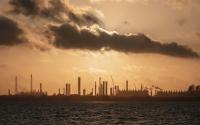9 January 2007Philip Thornton
By the end of tomorrow the average Briton will have caused as much global warning as the typical Kenyan will over the whole of this year, according to a report.
The findings highlight the glaring imbalance between the rich countries that produce most of the pollution and the poor countries that suffer the consequences in the forms of drought, floods, starvation and disease.
The World Development Movement (WDM), a poverty campaign group, has drawn up a "climate calendar" showing the dates when the UK will have emitted as much CO2 gas as other countries will in a year.
Unsurprisingly, the poorest counties such as Chad, Afghanistan and the Democratic Republic of Congo produce virtually no carbon emissions. Even populous countries such as India will be overtaken in its emissions by the UK in a month's time. In fact, 164 countries in the world have a smaller carbon footprint than the UK, while just 20, mainly including the major oil producers as well as the US, have a larger one.
By the end of tomorrow the average Briton will have produced 0.26 tonnes of CO2 emissions.
"The poorest countries in the world, with 738 million people, make no contribution to climate change, but it is those same people who face the worst consequences," Benedict Southworth, WDM's director, said. " One hundred and sixty thousand people are already dying every year due to climate change- related diseases and billions will face drought, floods, starvation and disease."
WDM has calculated the figures by taking the annual CO2 emission for each country, dividing by the number of people and then working out a daily contribution.
Thus while an Afghan on average will produce an annual equivalent of 0.02 tonnes of CO2, a Briton will produce 9.62 tonnes and the most prolific polluter - someone from the United Arab Emirates - will emit about 56 tonnes.
WDM acknowledged that its figures were based on averages that masked differences between life in rural and urban areas, but said that the figures still exposed the "injustice" of global warming.
"It is the richest people in the world who have produced and who are still producing most of the greenhouse gases causing climate change," Mr Southworth said.
The report said 7,800 Kenyans, Tanzanians and Rwandans died every year from diseases that were related to climate change. It warned that a 2C rise in temperature could lead to as many as 60 million more people being exposed to malaria in Africa.
The potential for massive ecological and human suffering as a result of climate change was a key finding in the report by Sir Nicholas Stern, although it was overshadowed by the political debate over the need for higher taxes or the imposition of rationing.
The Stern report found that many "vulnerable" regions embracing millions of people in sub-Saharan Africa were at risk from harvest failures, droughts and malaria.
It warned that these phenomena would affect the poorest people most of all and fuel conflicts and raise the number of child deaths as populations moved to avoid the worst-hit areas.
WDM said that although the Government had used the Stern report to show Britain's commitment to fighting climate change, emissions had risen 5 per cent under Labour.
It called on the Government to include legally binding annual targets to cut emissions in its Climate Change Bill.
Carbon comparison
The average British citizen produces 26kg of CO2 in a day. This breaks down as follows:
* 7.4 electricity * 1.6 fuel production * 3.8 manufacturing and construction * 7.4 transport, of which: (5.2 road transport, 1.7 air travel, 0.1 railways and 0.4 shipping)* 1.0 office buildings * 3.8 residential heating * 1.0 Other industrial processes, agriculture, military travel, other
The average Kenyan citizen produces 0.7kg of CO2 in a day. This breaks down as follows:
* 0.08 electricity * 0.08 fuel production * 0.16 manufacturing and construction * 0.31 transport * 0.07 other
http://news.independent.co.uk/environment/article2137667.ece






